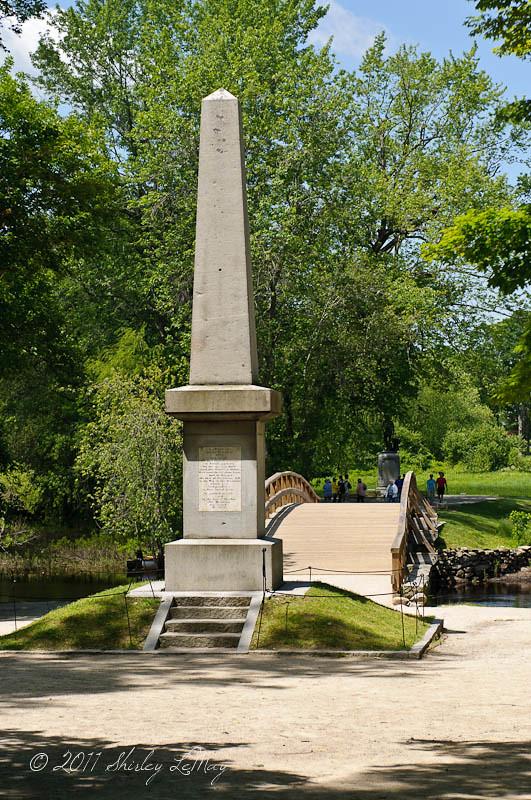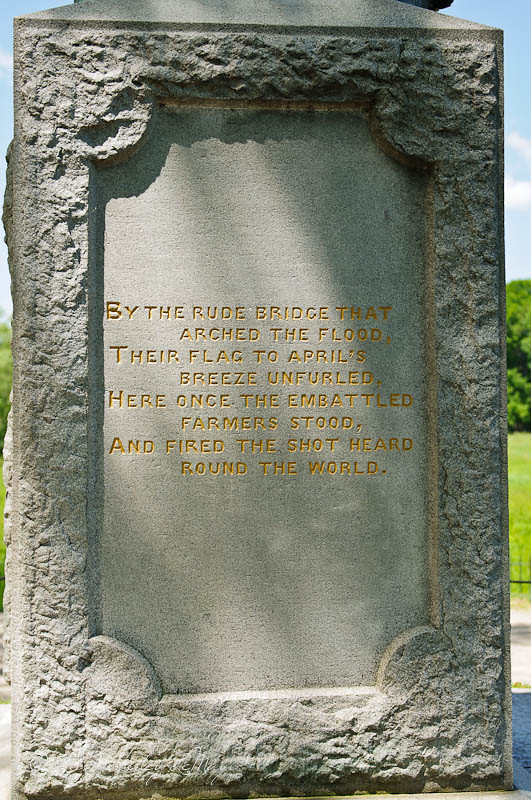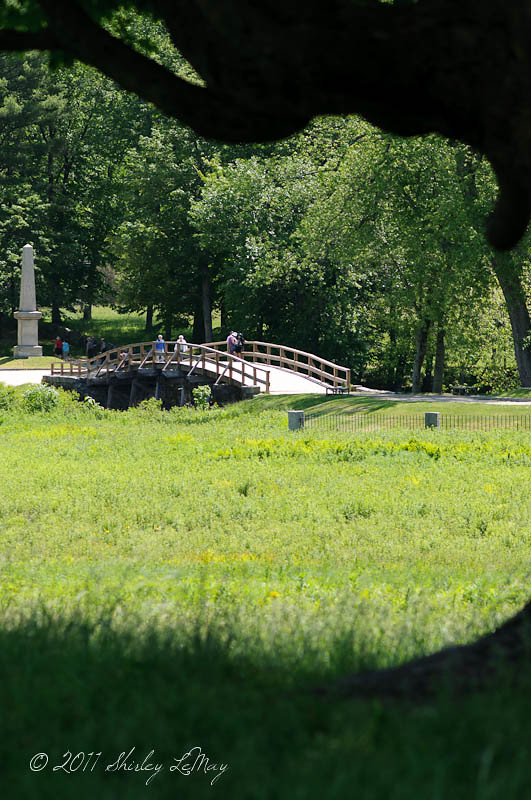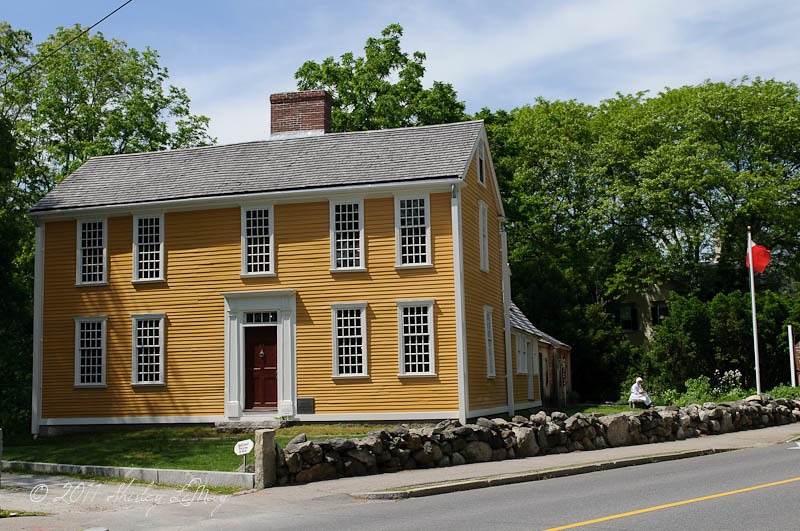I drove to Lexington in order to meet up with some friends from work and college. Before meeting up with my friends, I decided to take a short visit to the Minute Man National Park which encompasses the battlefields and structures of the opening battle of the Revolutionary War. Since I was short on time, I decided to focus my time at the North Bridge (located in Concord), where the first major battle between the British and colonial militia was fought.

In front of the North Bridge is the British Soldiers’ Gravestone, where the first verse of The Concord Hymn is engraved:

Past the North Bridge, I walked towards the Buttrick Mansion where the North Bridge visitor’s center is housed. I could only imagine the battle that ensued in the meadow area between the two landmarks.

I never entered the Buttrick Mansion because the gardens of the grounds were in full bloom and I just can’t pass up all those flowers.


After my visit to Concord, my friends and I walked around downtown Lexington, where several historic landmarks, including the Battle Green and the Hancock-Clarke House are located.

After visiting both towns, I was confused by the timing of the events of the day (first shots of the Revolutionary War in Lexington vs the Shot Heard Around The World in Concord). After some research, I learned that the British soldiers marched from Boston, first passing through Lexington where the British troops encountered a small number colonial militia. An exchange of battle fire occurred, hence the first shots of the Revolutionary war. The outnumbered local militia in Lexington fell back and the British continued their advance into Concord where they encountered the large contingent of colonial militia at the North Bridge, and thus, the first battle was fought. This scene was the inspiration for Emerson’s Concord Hymn, where the phrase “Shot Heard Around the World” was coined.
Details of the days’ events, from the Minute Man National Park website:
On the evening of April 18, 1775, General Thomas Gage sent approximately 700 British soldiers out to Concord (about 18 miles distant) to seize and destroy military stores and equipment known to be stockpiled in the town.
The decade-long political feud between the British government and the American colonists, determined to retain their rights as British subjects, came to a devastating climax as British regulars clashed with colonial militia and minute men on April 19, 1775 at Lexington, Concord's North Bridge and on the long, bloody road back to Boston. The fighting that began that day soon grew into a war for independence that lasted more than eight years.
It's funny and sad at the same time - I lived in this area for many years, yet never took the time to explore the rich history in the area. I suggest you take the time to explore the historical and cultural relevance in your local area. You may not have the opportunity to go back once you've left the area.
No comments:
Post a Comment